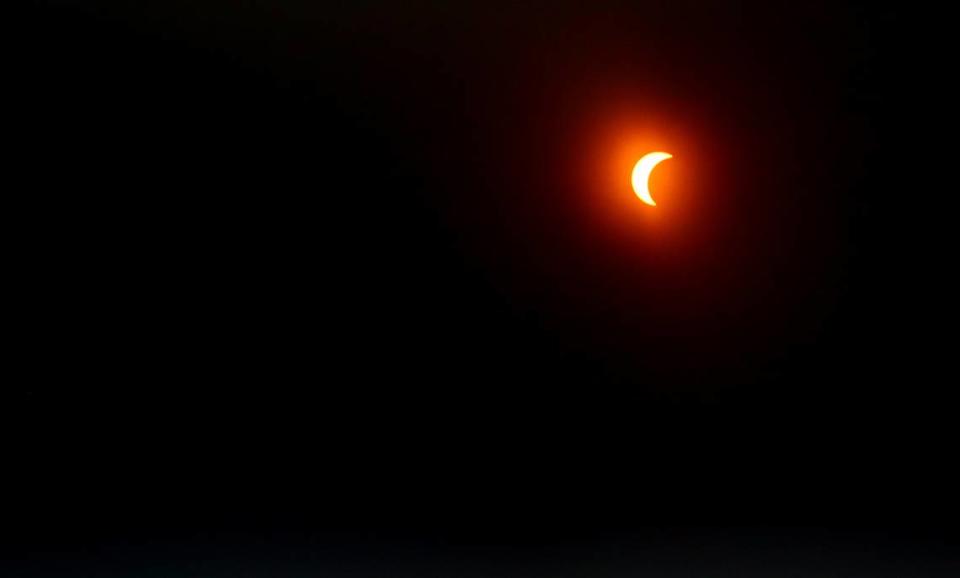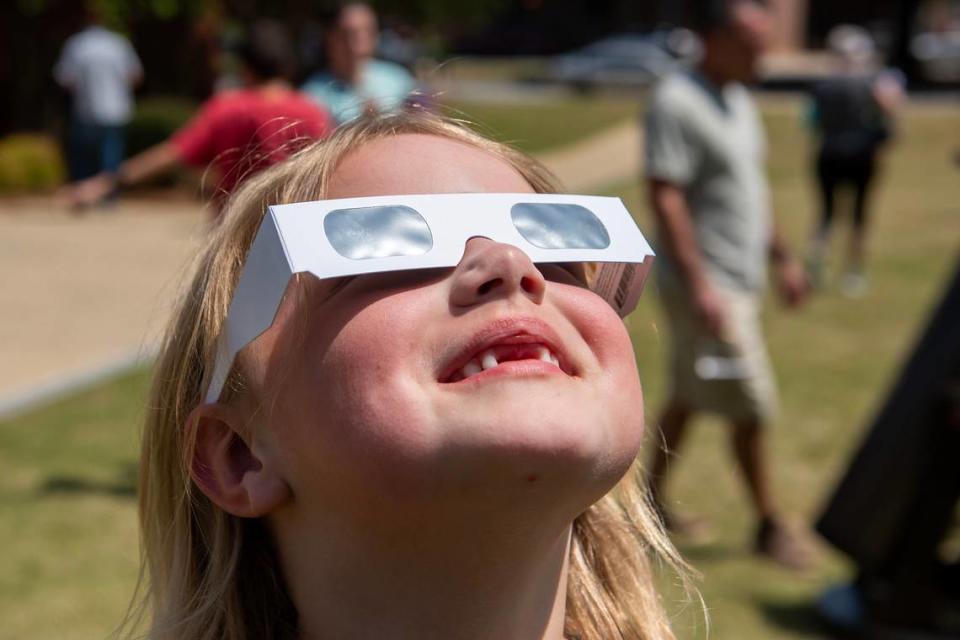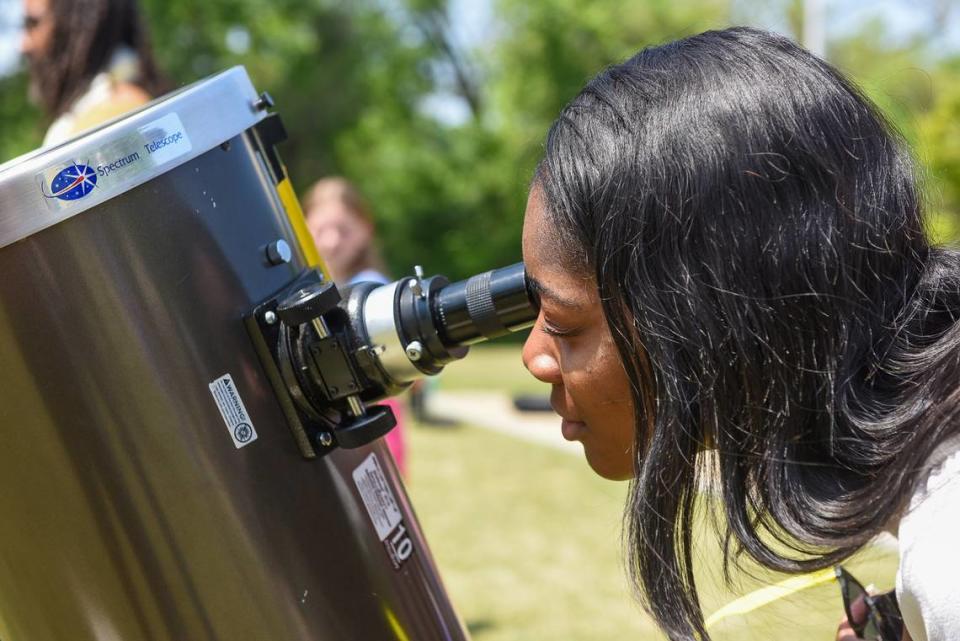Solar eclipse mesmerizes Columbus and beyond as celestial event retreats for 20 years
The rare solar eclipse event captivated the attention of Columbus Monday as young and old donned special sunglasses and other homemade devices to view the event.
Here in Columbus the moon was expected to cover about 79% of the sun. Starting at 1:43 p.m., the moon started to block off the edge of the sun’s disk. By 2 p.m., the moon took a substantial bite out of the sun and by 3 pm, more of the sun emerged, as scientists had explained.

“Wow, that’s crazy,” Emily Capling said as she put on the eclipse safety viewing glasses. “I will honestly remember this forever, at least until the next time in 20 years.”

According to NASA, a total solar eclipse happens when the moon passes in between the sun and Earth, which blocks the face of the sun. For places in the path of totality where the total solar eclipse can be fully seen, the sky will darken in the middle of the day and it’ll look like it’s dusk or very early dawn outside.
The interactive map by National Solar Observatory (NSO) showed the exact path of the total solar eclipse and in Atlanta, the eclipse was to be visible partially (81%) at 1:45 p.m. with a maximum viewing experience at 3:04 p.m. NSO reported that in Atlanta, the view would look like the sun has a big chunk out of it, but the sky would still be bright.


